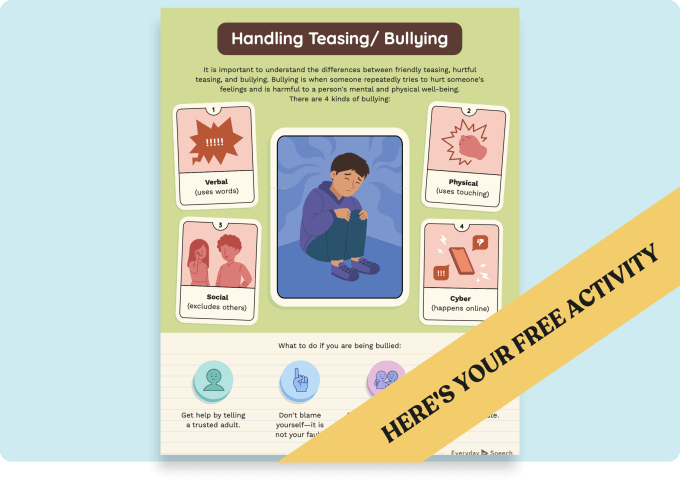Creating Effective IEP Goals for Developing Storytelling Skills in Kindergarten Students
Get free social skills materials
No-prep lessons on self-regulation, emotional recognition, conversation skills, and more.
Sign up hereDownload 50+ Example IEP Goals
Customizable library of strengths-based goals
Introduction
Developing strong storytelling skills is essential for kindergarten students in special education settings. The ability to provide clear and detailed information in their stories promotes better understanding and social interactions, ultimately contributing to their overall wellbeing.
Understanding the Background Brief
The “Background Brief” is a storytelling technique that helps students effectively communicate by providing necessary information for their listeners. This includes details such as when the event occurred, who was involved, what happened, and where it took place. Mastering the Background Brief improves students’ learning, social interactions, and emotional wellbeing.
The Role of Specialists
Various specialists can support the development of the Background Brief skill in kindergarten students:
- Speech-Language Pathologists: Assist in building vocabulary and sentence structure for effective storytelling.
- Social Workers: Help students understand the social context and the importance of providing relevant information in their stories.
- Psychologists: Support students in overcoming any emotional or cognitive barriers to effective storytelling.
- School Counselors: Guide students in developing self-awareness and understanding the perspectives of their listeners.
IEP Goals for the Background Brief
Here are some SMART IEP goals to help kindergarten students develop their Background Brief skills:
- Goal: The student will improve their storytelling skills by consistently incorporating the Background Brief elements (When, Who, What, and Where) in 80% of their stories.
Strategies/Activities: Provide visual prompts, practice storytelling with peers, and offer constructive feedback.
- Goal: The student will demonstrate an understanding of their listener’s perspective by adjusting their storytelling based on the listener’s knowledge in 4 out of 5 opportunities.
Strategies/Activities: Role-playing, discussing listener’s perspective, and using social stories.
Implementing and Measuring Progress
To implement these goals and measure progress:
- Collaborate with specialists to create a tailored plan for each student.
- Monitor students’ progress regularly through observation and documentation.
- Provide consistent feedback and encouragement to help students stay motivated.
- Adjust strategies and goals as needed based on students’ progress and needs.
Conclusion
Developing effective IEP goals for kindergarten students’ storytelling skills, specifically the Background Brief, is essential for their success in social interactions and learning. By collaborating with specialists and implementing tailored strategies, educators can help students master this important skill. We encourage you to apply these IEP goals and explore more resources at Everyday Speech Sample Materials.


